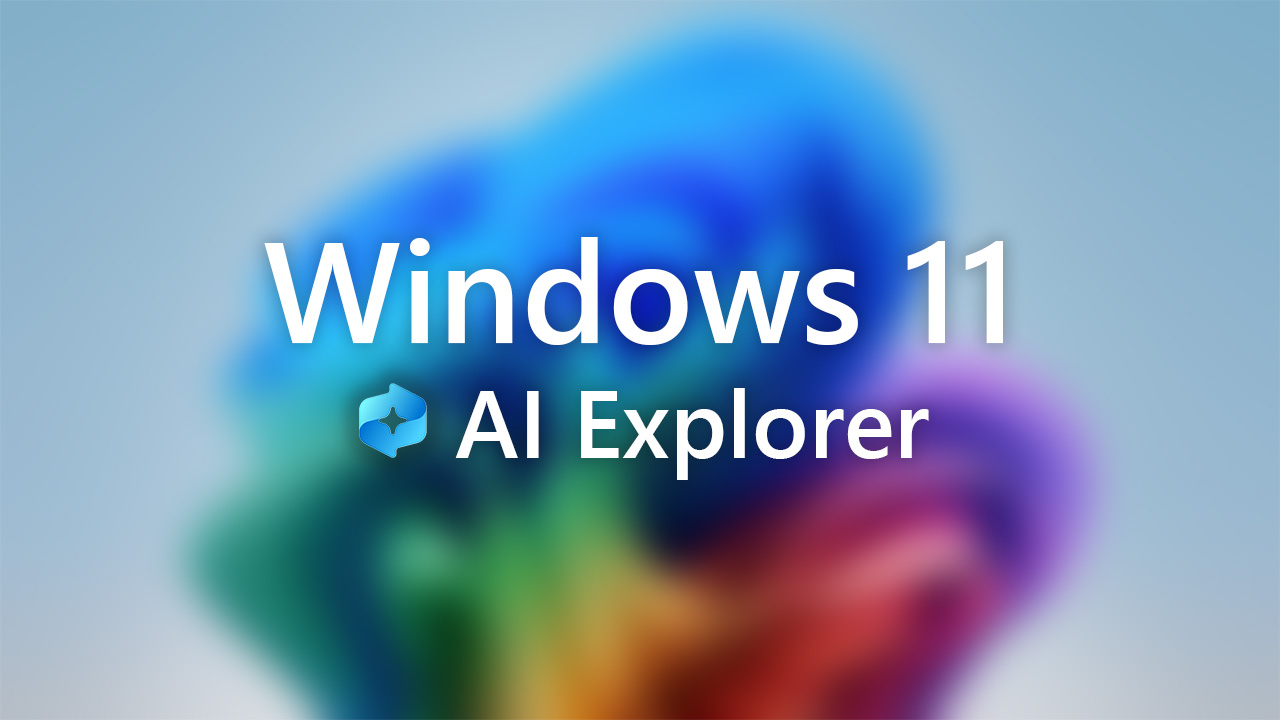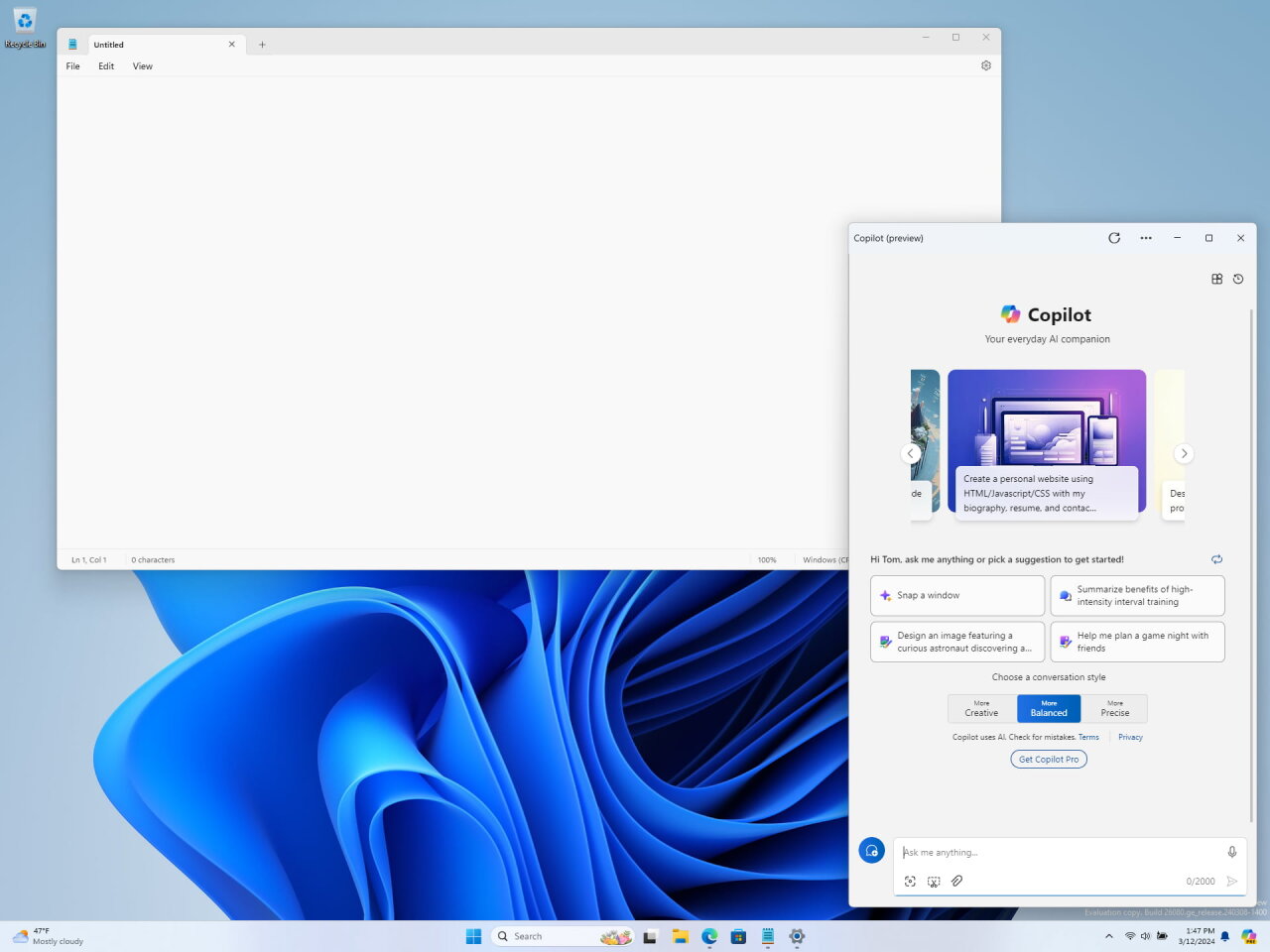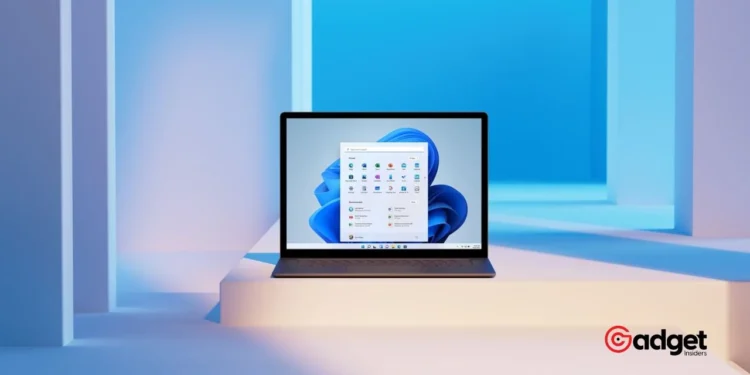Amidst the swirling rumors and concerns surrounding Windows 11’s upcoming AI Explorer, a recent clarification by a noted Microsoft leaker, Albacore, has set the record straight. Users worried about intrusive system warnings and watermarks can breathe easier now, thanks to the leaker’s recent insights shared on X (formerly Twitter).

The Stir Over Windows 11’s AI Capabilities
It all started when speculation mounted over Windows 11 incorporating AI Explorer, an advanced tool designed to leverage artificial intelligence directly within the operating system.
Misinterpretations began to surface after Albacore revealed that AI Explorer might check for specific system requirements and potentially warn users whose PCs don’t cut.
The concern among the Windows community was that these warnings could manifest as persistent watermarks or nagging notifications across the OS. This worry was compounded by the leaker’s initial findings, which pointed to stringent requirements like 16GB of RAM and an ARM CPU to run the feature effectively.
Don't panic – your Windows PC isn't about to get watermarked https://t.co/Ss1e6jA12v
— TechRadar (@techradar) April 30, 2024
Clarifications from the Source
However, Albacore was quick to quash these fears with a follow-up post:
“Clearing up a few things ❗1. These are requirements as of build 26100.1, MS can change them later 2. Warnings displayed if your system doesn’t meet them are purely within AIX, no OS-wide nag 3. AIX is AI Explorer, NOT AI File Explorer! Completely separate app, not a replacement.”
This tweet clarified that any alerts about system inadequacies would be confined to the AI Explorer app itself—a standalone application distinct from Windows File Explorer. This means that unless users actively engage with AI Explorer, they won’t even encounter these warnings.

Analyzing Microsoft’s ARM-First Strategy
The decision to initially support only ARM processors with robust NPUs (Neural Processing Units) like those found in Snapdragon X chips hints at Microsoft’s strategy.
The company may be positioning AI Explorer not only as a groundbreaking feature but also as a catalyst for boosting its ARM-based Surface devices. This focus could rejuvenate interest and sales for its Surface line, which has seen flagging enthusiasm from consumers recently.
Potential Impacts and Future Outlook
With AI Explorer, Microsoft seems to be testing the waters with an ARM-first approach, which could later expand to include Intel and AMD processors as their capabilities evolve to support intensive AI tasks.
The requirements listed in the Windows 11 preview builds are subject to change, especially as the official release of Windows 11 24H2 approaches, which is expected to fully integrate AI Explorer.
The cautious approach to interpreting leaks and unofficial information is advisable, as the landscape of technology, especially something as dynamic as AI implementation in operating systems, is prone to rapid changes and developments.

Looking Ahead
Microsoft’s AI Explorer is shaping up to be a significant leap forward in integrating artificial intelligence with personal computing. While initial plans may cater to a more technically advanced setup, broader accessibility is likely as the technology matures.
For now, Windows users can look forward to exploring AI capabilities without the worry of invasive system notifications, provided their setups meet the evolving requirements. The unfolding of AI Explorer’s integration will undoubtedly be a key area to watch as Microsoft continues to push the boundaries of what’s possible within its operating system.









